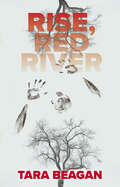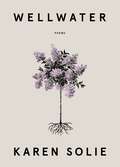Title search results
Showing 1 - 2 of 2 items

Rise, Red River
By Tara Beagan. 2025
Braille (Contracted), Electronic braille (Contracted), DAISY Audio (Direct to Player), DAISY Audio (Zip), DAISY text (Direct to player), DAISY text (Zip), Word (Zip), ePub (Zip)
Canadian non-fiction, Drama
Synthetic audio, Automated braille
“The map of the land is in our blood.”A woman trawls the bottom of a riverbed with a makeshift plough,…
hoping to dislodge something—anything. The world has drastically changed: rivers run dry, rampant bushfires leave little left to burn. Still she persists searching for the stories of her loved ones, maybe even her own. She is not alone—an ancestor watches nearby. This desolate landscape is about to unearth its long-held secrets.Inspired by the grassroots organization Drag the Red, which searches for evidence of missing Indigenous and settler women, girls, 2 Spirit, and people of all genders in the Red River of Treaty One Territory, this ethereal and engrossing drama is a profound offering to those who persevere in spite of sorrow. Told in Anishinaabemowin, English, and French, Tara Beagan’s prophetic play draws a direct connection between the treatment of Indigenous peoples and the abuse inflicted on the land. Fluid and majestic like the river itself, Rise, Red River is an invocation, a revelation, and a call to action.
Wellwater: Poems
By Null Karen Solie. 2025
Braille (Contracted), Electronic braille (Contracted), DAISY Audio (Direct to Player), DAISY Audio (Zip), DAISY text (Direct to player), DAISY text (Zip), Word (Zip), ePub (Zip)
Poetry
Synthetic audio, Automated braille
The poems in Wellwater, Karen Solie’s sixth collection, explore the intersection of cultural, economic, and personal ideas of “value,” addressing…
housing, economic and environmental crisis, and aging and its incumbent losses. In an era of accelerating inequality, places many of us thought of as home have become unaffordable. In “Basement Suite,” the faux-utopian economy of Airbnb suggests people with property “share” it with us and, presumably, we should be grateful. In “Parables of the Rat” the speaker feels affinity with scavengers while also wanting the rats gone. Having grown up in Saskatchewan on a small family farm, Solie sees the economic and environmental crises as inseparable. Climate change has made small farming increasingly untenable, allowing overbearing corporate control of food production. But hope, Solie argues, is as necessary to addressing the crises of our time as bearing witness, in poems that celebrate wonder and persistence in the non-human world. Tamarack forests in Newfoundland that grow inches over hundreds of years, the suddenly thriving pronghorn antelope, or a new, unidentified and ineradicable climbing vine, all hint at renewal, and a way to move forward.